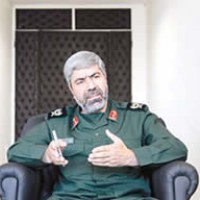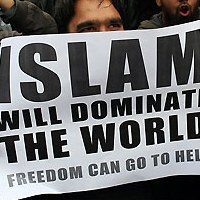![]()
RubinReports | By Barry Rubin
Although it isn’t official, the first two articles of Egypt’s new Constitution have been reportedly drafted by the committee of parliamentarians charged with that task. Article 1 defines Egypt as part of the Arab and Muslim nation, a compromise between acceptance of the country as a normal nation-state and its identity as either a purely Arab nationalist or Islamist entity.
Similarly, Article 2, according to Mohamed Emara, head of the committee responsible for drafting this section, says:
“Islam is the religion of the state, and Arabic is its official language, and the principles of Islamic Sharia are the main source for legislation. Christians and Jews shall resort to legislation derived from their own religions.”
There is some ambiguity here as to whether Egypt would thus be a Sharia state. On one hand, Islamic law is not made the sole source of legislation, while the word “principles” might mean that the interpretation will be loose, principles and not all of the details. Bourhamy says that this merely shows that Egypt isn’t a secular state.
On the other hand, though, both the Muslim Brotherhood and the Salafis accepted this formulation. Since they want a Sharia state this implies they don’t feel that phrasing blocks their goal. Moreover, the meaning of those “principles” will be defined not by the courts but by the al-Azhar mosque university. While the leaders of that institution are more moderate than the Brotherhood and Salafis, presumably President Muhammad al-Mursi will replace them at some point with his own people.
Incidentally, one reader asked me why the Constitution refers to Jews even though there are literally no Jews in Egypt. I think the reason is that Islamists wrote this section simply putting in traditional language of how the “People of the Book” were supposed to be treated according to Muslim holy texts. Otherwise it makes no sense.
The Arabic word used to define “democracy” in the Egyptian Constitution is “shura.” This is a term often used in Muslim countries because it is found in the Koran. It might be translated as “consultative,” since the ruler (then the caliph; in this case, al-Mursi) can consult with the parliament. This might be taken to imply that its decisions are not binding. Also that the parliament does not have a free hand in passing laws since — it is implied — no law can be passed that conflicts with Sharia law.
Non-Islamists can argue that there is no harm in the word but it should be noted that the idea for using this term was suggested by a Salafist.
The bottom line is that there is an ambiguity which Western observers and anti-Islamist Egyptians can say means that the country will not be a Sharia state, while Islamists can maintain their own view. The key point, of course, is not the wording as such but who gets to interpret it down the road.
Finally, Christians, it is implied, will be governed by their own religious laws. But this is a peculiar formulation. If Egypt is not governed by Sharia law then why would Christians need to be exempt from it? If this provision is restricted only to matters of personal status (principally marriage, divorce, and inheritance) then Christians would mostly be living under Sharia law in any state court. And what does this constitutional provision mean for example regarding the status of women, where Egyptian law has granted more rights than Sharia would do? Another important issue will be the appointment of future judges since many of the current magistrates oppose Sharia law as that of the state.
If there is an Islamist president and parliament who pass laws that correspond only to Sharia and who appoint Islamist judges and al-Azhar shaykhs then Egypt will be a Sharia state. No doubt though the Constitution will be interpreted by many Western observers of proof that the Brotherhood and Salafists have moderated.



 RSS
RSS











Latest Comments
Hello Mike, Thank you for your positive feedback to the article. I felt there wasn’t too much critical analysis of ...
Thanks for this considered and well constructed article. A follow up article on the manner in which the editorial contro...
THE CLUELESSNESS OF CLAIMING THAT OBAMA'S MIDDLE EAST POLICIES WERE A FAILURE CANNOT BE FURTHER FROM THE TRUTH, WHAT THE...
As long as Obama is the president of the usa do not trust the us government......
Thank you for an good read....